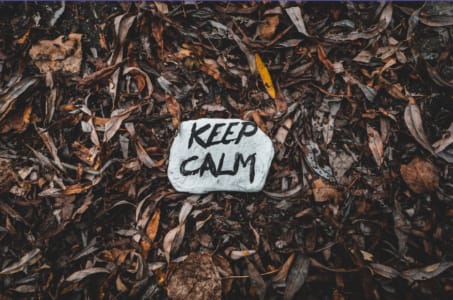[grwebform url=”https://app.getresponse.com/view_webform_v2.js?u=wfNAY&webforms_id=57753701″ css=”on” center=”off” center_margin=”200″/]
9 Tips: Gratitude and Anxiety Reduction
You can learn how gratitude and anxiety reduction are related. Anxiety has similar issues to depression and anger, and once these emotions start to control your thoughts and words, you start to dwell on the negative. In many of the following tips, you notice how it is suggested that you change your thought process.
You can also call it interrupting your negative pattern of thoughts and words. Read through the tips and start to practice them with gratitude in your heart.
Short Stories
When you become extremely anxious about a situation, you have difficulty thinking of anything else. For example, if you feel anxiety coming on when you head to a crowded mall, stop for a few moments and take deep breaths. As you start to calm that anxiety, tell yourself a short story about something you value. You could say to yourself, “I value my family because they understand me and always offer support.” You will feel gratitude for your family, and the anxiety will lose some of its power over you.
Gratitude Journal
Keep a small gratitude journal with you. When a feeling of anxiety appears, stop what you are doing and write in your journal. Put your focus on putting words on paper instead of thinking about your rapid breathing. Your breathing will slow as you begin to write or doodle a smiley face. Keep doing your gratitude journal with lines such as, “I am at peace with the world, and I am grateful for that.” The overall anxiety attack will begin to slow down, and you can continue with your day.
Meditate
You can meditate anywhere, but we will use the idea of being home for this tip. As your anxiety starts to act up, go to a quiet space and light a candle. Sit and focus on the candle and watch it move. Begin to breathe deeply and if you feel less anxious, close your eyes and meditate. Continue to meditate and enjoy the gratitude moment.
Recognize Love Ones
When you are alone and anxiety starts up, think for a moment of who you love. Pretend they are in the room with you. Start with the words, thank you and then add a short reason why you are grateful for them and what they said or did to make you feel that way. You can speak softly and slowly to really get into the feel of gratitude.
Just saying “Thank You” can reduce the anxiety you are feeling. At home or work, say thank you to everyone you make eye contact with.
Phone a Friend
Anxiety can be like an anchor around your neck when you are alone. It keeps pulling you down because you do not have any support. This is the time to pick up the phone and call a loved one. You don’t need to describe your anxiety to them. Instead, focus on telling them how happy you are that they are in your life. Be clear as to what their presence means to you and how life would be a dull affair without them.
Enjoy Beauty
If you are home and unable to go out, find something that you consider beautiful and makes your home a happy place. It may be a printed photograph or painting. Sit in front of it and express your gratitude for the image. Look deeply at it and appreciate each color; if it is black and white, then appreciate the different shades.
Give Yourself Permission
Sometimes you need to give yourself permission to be grateful for what you have that is positive in your life. Gratitude has been shown to improve all areas of life, and even people who are grieving the death of a loved one can benefit from gratitude. When you suffer from anxiety, you may find being grateful somewhat absurd. You need to fix that negative feeling. Sit quietly and repeat to yourself, “I now give myself permission to release the anxiety and replace it with gratitude.” Continue with this until you feel at peace.
Acknowledge Your Anxiety
Sometimes people will not even acknowledge that they have depression or anxiety. They label it as something else because they do not want to be perceived as a negative person. You should acknowledge the anxiety verbally and then say, “Now, I will take the time to acknowledge my gratitude for every positive aspect of my life.”
Deep Breathing
We have mentioned pattern interrupts and deep breathing in our tips. Our last tip focuses on deep breathing for extreme anxiety. There are numerous ways to engage in deep breathing, and quite a few are yoga-based. Do some research and find the type of deep breathing that appeals to you. Practice this style of deep breathing and use it in times of extreme stress. Deep breath and bring up mental images of everything you are grateful for. As they say in terms of firefighting, “This will knock it down.” Firefighters put out fires by knocking them down with water, and you will knock down anxiety with your method of deep breathing and gratitude.
What’s Next
In our website we have an entire section devoted to anxiety and stress. Click this link to find more helpful articles to help you handle anxiety and stress.
[grwebform url=”https://app.getresponse.com/view_webform_v2.js?u=wfNAY&webforms_id=57753701″ css=”on” center=”off” center_margin=”200″/]

